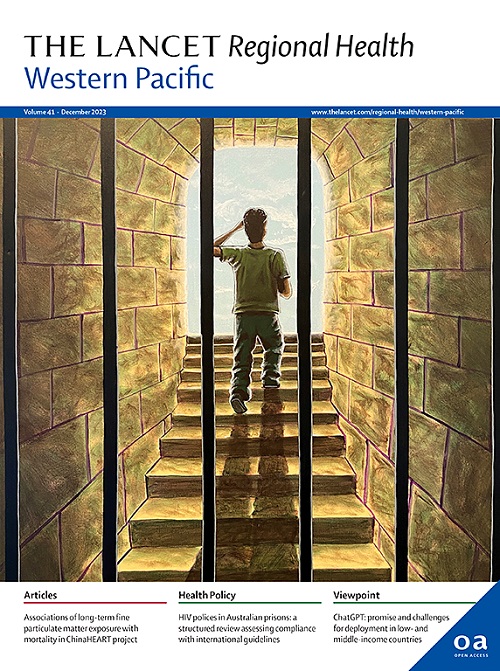西太平洋地区诊断后痴呆症护理:需求评估和最佳护理途径
IF 7.6
1区 医学
Q1 HEALTH CARE SCIENCES & SERVICES
引用次数: 0
摘要
西太平洋地区的人口约占世界总人口的 25%。在无法治愈痴呆症的情况下,必须把重点放在为痴呆症患者及其家人提供适当和方便的护理途径上。本视点概述了该地区一些中低收入国家(老挝、所罗门群岛、菲律宾)和中高收入国家(中国)以及高收入国家(韩国、澳大利亚)从诊断到康复的系统级痴呆症诊断后护理。文中讨论了痴呆症诊断后护理方面的差距和挑战,以及优化护理的建议。本视点强调了该地区在痴呆症诊断后护理方面存在的巨大系统差异。本文章由计算机程序翻译,如有差异,请以英文原文为准。
Post-diagnosis dementia care in the Western Pacific region: assessment of needs and pathways to optimal care
The Western Pacific region is home to approximately 25% of the world's population. In the absence of cures for dementia, it is essential to focus on appropriate and accessible care pathways for people living with dementia and their families. This approach will ultimately result in timely diagnosis and improved care and support.
Ensuring adequate dementia care and support pathways has been a longstanding issue in many developed countries and is becoming a more prominent issue in countries with rising dementia prevalence rates but comparatively limited health resources.
This Viewpoint provides an overview of system-level post-diagnosis dementia care, from diagnosis to rehabilitation, across some of the region's lower (Laos, Solomon Islands, Philippines) and upper (China) middle income and high income (South Korea, Australia) countries. Gaps and challenges in post-diagnosis dementia care, as well as suggestions for optimal care, are discussed. This Viewpoint highlights highly variable system level post-diagnosis dementia care in the region.
求助全文
通过发布文献求助,成功后即可免费获取论文全文。
去求助
来源期刊

The Lancet Regional Health: Western Pacific
Medicine-Pediatrics, Perinatology and Child Health
CiteScore
8.80
自引率
2.80%
发文量
305
审稿时长
11 weeks
期刊介绍:
The Lancet Regional Health – Western Pacific, a gold open access journal, is an integral part of The Lancet's global initiative advocating for healthcare quality and access worldwide. It aims to advance clinical practice and health policy in the Western Pacific region, contributing to enhanced health outcomes. The journal publishes high-quality original research shedding light on clinical practice and health policy in the region. It also includes reviews, commentaries, and opinion pieces covering diverse regional health topics, such as infectious diseases, non-communicable diseases, child and adolescent health, maternal and reproductive health, aging health, mental health, the health workforce and systems, and health policy.
 求助内容:
求助内容: 应助结果提醒方式:
应助结果提醒方式:


